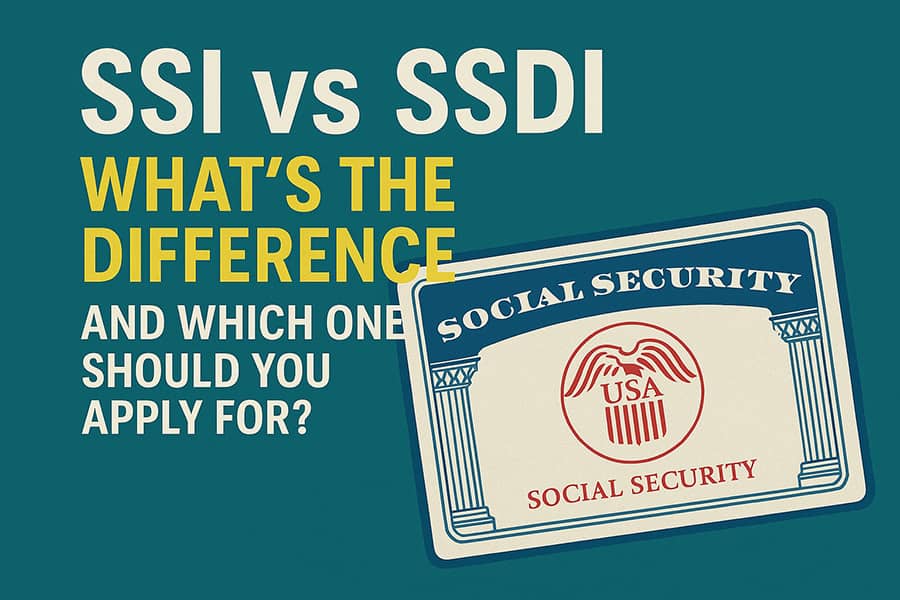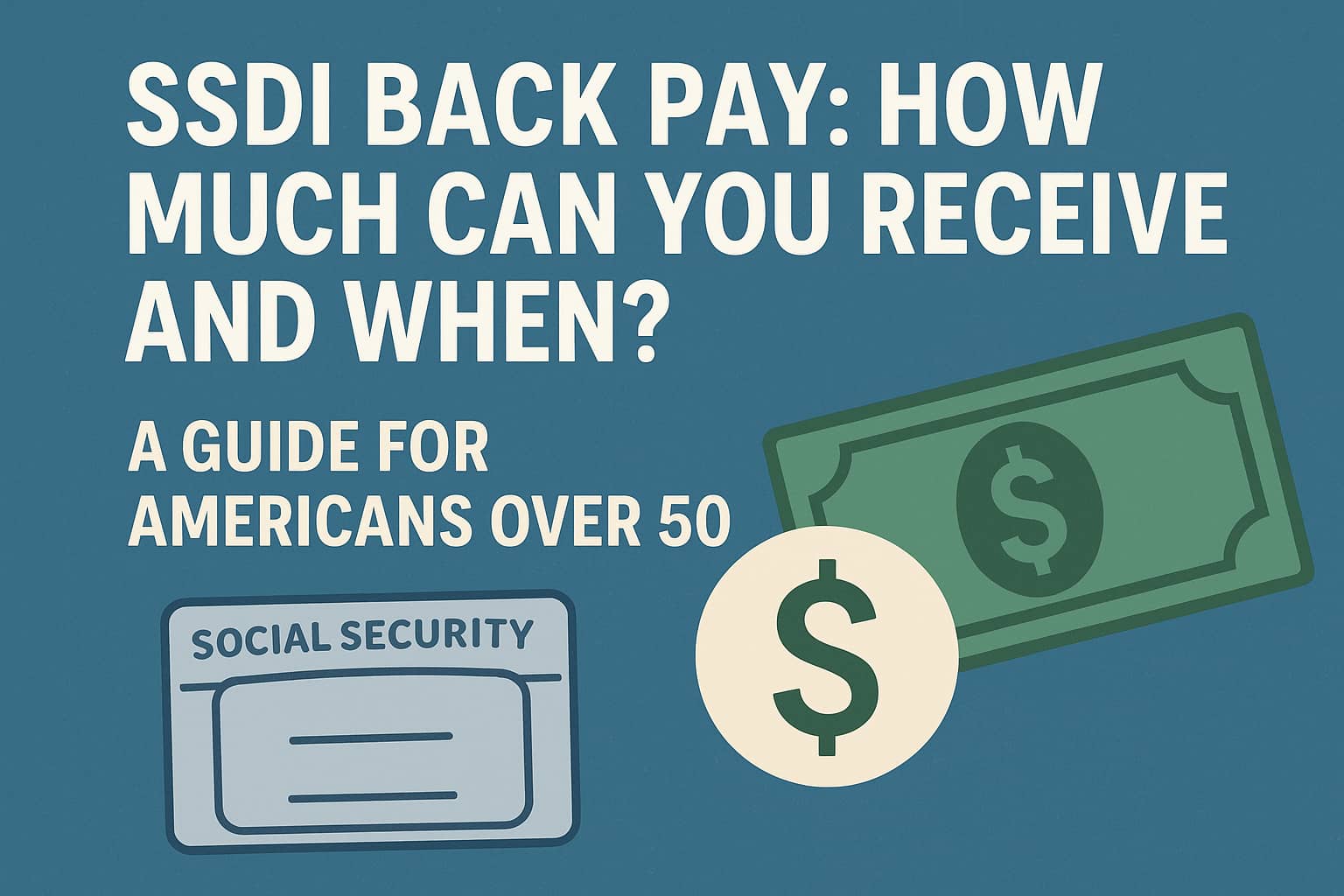
SSI vs SSDI: What’s the Difference and Which One Should You Apply For?
July 28, 2025
If you’re struggling with a disability and need financial assistance, understanding the difference between Supplemental Security Income (SSI) and Social Security Disability Insurance (SSDI) is essential. While both programs offer crucial support, they serve different purposes and have distinct eligibility requirements. Choosing the right one could significantly affect your monthly income and long-term benefits.
What Is SSDI?
Social Security Disability Insurance (SSDI) is a federal program that provides benefits to individuals who have worked and paid Social Security taxes over time but can no longer work due to a qualifying disability. This is an earned benefit—you must have a sufficient work history to qualify.
Key Features of SSDI:
- Work credits: Most people need 40 credits, 20 of which were earned in the last 10 years.
- Medical criteria: Must meet the SSA’s definition of disability.
- Monthly payment: Based on your average lifetime earnings.
- Medicare eligibility: Begins after 24 months of SSDI payments.
SSDI back pay, apply for SSDI, Social Security Disability benefits, disability income calculator
What Is SSI?
Supplemental Security Income (SSI) is a need-based program designed for low-income individuals who are disabled, blind, or aged 65 or older. It’s funded by general tax revenues—not Social Security taxes—so prior work history is not a requirement.
Key Features of SSI:
- Income limits: Applicants must have very limited income and resources.
- Disability criteria: Same as SSDI for disabled individuals.
- Monthly payment: Fixed federal rate with some state supplements.
- Medicaid eligibility: Available immediately in most states.
SSI eligibility, how to apply for SSI, SSI income limits, Supplemental Security Income benefits
SSI vs SSDI: The Main Differences
| Feature | SSDI | SSI |
|---|---|---|
| Eligibility | Work history and disability | Low income and disability/age |
| Funding Source | Payroll taxes (Social Security) | General tax revenue |
| Health Insurance | Medicare (after 2 years) | Medicaid (immediate) |
| Payment Amount | Based on earnings history | Set federal amount + state supplement |
| Work Credits Required | Yes | No |
Which One Should You Apply For?
If you have a work history and a qualifying disability, SSDI is usually the better choice due to higher monthly benefits and eventual access to Medicare. However, if you lack the necessary work credits or have very low income and resources, SSI may be your only option.
In some cases, individuals may qualify for both SSI and SSDI. This is known as “concurrent benefits” and is common among those who receive a low SSDI payment due to limited work history.
How to Apply for SSI or SSDI
You can apply for both programs online through the Social Security Administration (SSA), by phone, or at your local SSA office. Make sure to have your medical records, employment history, and financial information ready.
disability benefits application, Social Security online form, SSDI claim process, SSI application tips
Tips to Improve Your Approval Chances
- Ensure your medical documentation is complete and up to date.
- Provide a detailed work history, especially for SSDI.
- Respond promptly to all SSA communication.
- Consider hiring a disability attorney if you’re unsure how to proceed.
FAQs About SSDI and SSI
Can I receive both SSI and SSDI?
Yes, if your SSDI payment is low and you meet SSI’s income/resource limits, you may qualify for both.
Is one program easier to get approved for?
SSDI has a higher standard due to work history requirements. SSI focuses more on financial need.
How long does the application process take?
Initial applications can take 3 to 6 months. If denied, appeals can take over a year.
Conclusion: Choose Based on Your Needs
Whether you apply for SSI, SSDI, or both depends on your work history, financial situation, and disability status. Understanding the core differences between these two programs can help you make the right decision and increase your chances of receiving vital support when you need it most.
Legal Disclaimer
This article is for informational purposes only and does not constitute legal or financial advice. For specific questions regarding your eligibility or application, please consult with a qualified attorney or your local Social Security Administration office.
Recent Posts
What to Expect After You Apply: The Section 8 Waiting List
September 29, 2025
SSDI Back Pay: How Much Can You Receive and When?
September 29, 2025
How to Apply for Section 8 Housing in 2025 – Complete
September 27, 2025
How to Qualify for SNAP Benefits in 2025: The Complete Guide
September 27, 2025
Supplements That Help With Memory Loss in Seniors
August 10, 2025
SUBSCRIBE TO OUR NEWSLETTERS
Subscribe our newsletter for latest news, questions. Let's stay updated!





